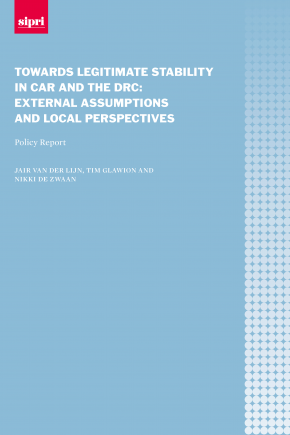Towards Legitimate Stability in CAR and the DRC: External Assumptions and Local Perspectives
This policy report unpacks the similarities and differences between the aims and objectives of external intervenors, on the one hand, and the desires of local communities and key stakeholders, on the other. It brings together the findings of two complementary policy studies—Securing Legitimate Stability in CAR: External Assumptions and Local Perspectives and Securing Legitimate Stability in the DRC: External Assumptions and Local Perspectives—which have been published separately.
The report examines the discrepancies, similarities, risks and opportunities identified regarding the questions of the role of the state, the provision of security and justice, and inclusion and the social contract. The analysis looks at the discrepancies and similarities between the assumptions of external intervenors and the perceptions and experiences of local populations and key stakeholders, as well as the risks and opportunities linked to achieving the legitimate stability that results from them. Its recommendations aim to contribute to guidance on how best to identify, account for and navigate these risks and opportunities.
I. Introduction
II. State of the art and analytic concepts
III. Methodology
IV. Case introductions
V. What is the role of the state?
VI. How should security and justice be provided?
VII. Who should be part of the social contract?
VIII. Conclusions
IX. Policy recommendations


